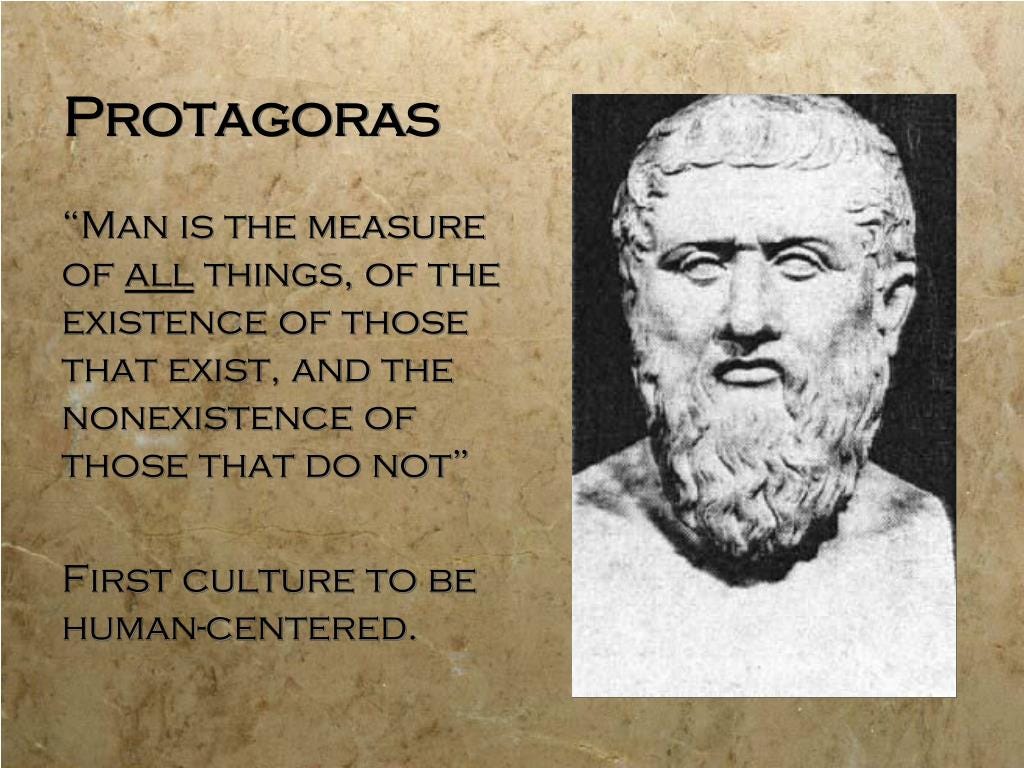Welcome back to ‘Follow the Mind’: the bimonthly edition.
Last month’s episode featured a lively critique of philosophy’s inherently anthropocentric methodology.
To save you the trouble of searching, here is a reprint of last month’s lively critique for your review, followed by an all-new lively supplement:
Some say that human knowledge, consciousness, memory etc. is inevitably anthropocentrically biased.
All human forms of measuring inward and external values are likewise unavoidably anthropocentric.
For example the primal concept of opposites -- hot/cold, one/many, up/down etc. -- is conditioned by human faculties whose senses determine antithetical meanings (antipodes). As Nietzsche says, there are no facts, only interpretations of facts.
If Nature/God/Logos = facts (Reality), then interpretations of facts are always human interpretations -- like the illusion of opposites, the Aristotelian laws of contradiction and logic, mathematics etc. -- rather than necessary universal qualities.
First mistake in philosophy: projection of human values onto nature at large, including human reason, which is the cornerstone of classical philosophy (“love of wisdom”).
SUPPLEMENT:
Q: Does the philosophical field of Epistemology address the anthropocentric bias of knowledge and rationality?
In other words, all human inquiry that relies on number — e.g. measurement, quantifiable patterning etc — depends on human conceits like numerically defined opposites, producing an artificial dualism between one/many (one OR not-one). Dualism itself, aka plurality, is thus always partial, a fracturing of oneness.
Human apprehension must act in accordance with universal principles or else it contradicts universality, but only after assuming universality in the first place.
Ask:
To substitute the human part for the whole — does this synecdoche (man = totality) reformulate the group/individual problem? i.e, the one/many problem, the unity/plurality problem ..
For instance, consider Descartes’ fallacy with regard to (dichotomous) individuality versus universality:
“I think, therefore I, a particular existence, am. Thus, if I have an idea (‘I think’) of God, then God’s (universal) existence must have CAUSED my thought.”
Descartes deduces God via (circular) causality and idealism (“the light of Reason”), invoking a Platonic First Cause (Perfect Form, God). The fallacies being: circular supposition and a priori argument.
The only honest philosophical alternative is to devalue the Cartesian overvaluation of Mind (“Nous”). This entails rejecting Plato’s mind-body dualism because Plato categorically posits the Universal/Real’s precedence over the Material/particular, as in his allegory of the cave wall on which perfect Reality projects its shadows (imperfect matter). To reject Plato is to embrace his rival Protagoras, who concedes that “Man is the measure of all things.”
RESOLVED:
The loss of Logos’ primacy, which is the foundation of philosophy, reveals the stone that Plato’s builders rejected — human idiosyncrasy, interpretations of facts — which shall become the cornerstone of philosophy’s palace of wisdom.




